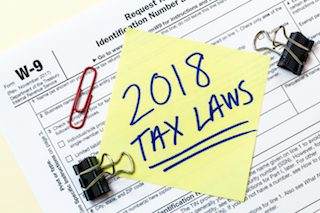Lori Ballen, the owner of this website, benefits from purchases made through her affiliate links.
One of the major attractions of real estate as an asset is that there are many ways to invest in real estate. From a cash-rich investor to the small investor with little or no cash, there will be a way in which to invest in real estate.

Although a lot of the television information, particularly on the popular shows, is focused on flipping houses, there are many other ways to invest in real estate.
#1 – Single Family Rental Homes
Probably, the most popular long-term real estate investment strategy is to buy a single-family residential property and place it into service as a rental. The benefits are numerous, including:
• Appreciation in value over time.
• Equity growth through both appreciation and paying down the mortgage.
• Positive cash flow monthly from rents.
• Deductibility of most expenses, including:
a. Real estate taxes
b. Repairs and maintenance expense
c. Marketing expense
d. Tenant acquisition expense
e. Utilities paid by the owner
f. Insurance
g. Depreciation
h. Other expenses
• Losses may be used to offset gains in other investments.
• Capital gains tax avoidance using the 1031 Exchange.
• Passing rental portfolio to heirs at stepped-up value, thus no capital gains taxes due.
It is easy to see why investors strive to own rental homes.
Some of the other strategies mentioned in this article are also related, in that the investors are flipping or in some other way, marketing homes to rental investors.
#2 – Multi-family Properties
Investors who have the resources and want to invest in more properties and diversify their holdings often move up to multi-family apartment investment.
Often they are part of an investment partnership or group that pools resources to invest in apartment projects.
All the advantages of the single-family rental investment apply, but they are leveraged for more units.
One significant advantage is the economy of scale in apartment investment. Many expenses of operation are lower per unit when many units are concentrated at one location.
This increases the potential cash flow and returns on investment per unit. As with single-family rentals, this is a long-term investment strategy.
#3 – Real Estate Wholesaling
The real estate wholesaler is often referred to as a flipper, as their strategy is a very short-term investment in a property to sell at a profit.
The differentiation as a wholesaler is normally that they have no intention of making any improvements or modifications to a property. They buy and sell it as is without rehab work of any kind.
The wholesaler’s goal is to use their skills and resources in locating good deals, usually for resale to a rental investor.
There is value in the wholesaler’s role. Many rental investors will purchase from them if presented with a reliable rental deal with positive cash flow and appreciation potential.
#4 – Flipping with Rehabilitation
These are the bulk of television personalities and flipping “gurus.” They locate properties in need of rehab work, improve and upgrade the homes, and then sell them at a profit.
The draw is that there are two components to this profit, the markup on the rehab work and profit from the sale.
These investors evaluate a property based on the ARV, After Repair Value. Once they know what it will be worth after they fix it up, they do a job cost estimate for the work and the time they are holding the property.
If they can pull it all together with a fat profit for the risk involved, they buy the home, rehab, then resell it in weeks to months.
#5 – Buying Real Estate Notes
This is not a highly publicized niche in the real estate investment world, but it can be quite profitable.
Many homes are owner-financed, or the mortgage notes are being held by smaller entities other than the big mortgage banks.
When one of these noteholders decides for whatever reason to sell their note, there is a marketplace for them and online resources to locate them.
The investor wants to find a “performing” note, meaning one that is at an acceptable interest rate and the homeowner is current on their mortgage payments.
It is a chance to buy a note yielding a stated rate of interest with a track record of payment. The investor becomes the new lender collecting the mortgage payments.
#6 – Tax Liens
This is a specialized niche of the many ways to invest in real estate. It is not done the same from state to state, but in general works this way:
1. A property owner falls behind in paying their property taxes in one or more jurisdictions.
2. The taxing authority places a tax lien on the property, in effect making it unsellable unless the lien is paid.
3. The taxpayer owner has a specified length of time before the lien may be sold to an investor, then it can be placed for sale at a set price or for bids.
4. Basically, the investor pays the back taxes and then holds the lien to collect taxes, interest, and penalties from the property owner.
5. Should the owner not pay the lien fees, they can lose the title to the property to the investor.
6. In most states there is a “right of redemption” period when the property owner can pay all costs, penalties, and interest and regain the property.
The investor stands to make money either way, and in the vast majority of cases, investors make a nice profit with the property owner paying what they owe before they lose the property.
#7 – Trading Instruments & Funds
There are several ways to invest in real estate passively without taking any management or ownership role other than a share of ownership. They include:
• Real estate mutual funds – a mutual fund buys and sells either real estate mortgage instruments or the real estate itself, sharing as dividends with the fund shareholders the investments’ profits.
Fund managers choose the investments and management fees can be high.
• REITs, Real Estate Investment Trusts – These are a type of mutual fund, but with lower management costs and they are traded on the open market like stocks, unlike mutual fund investments.
• Real estate ETFs, Exchange Traded Funds – Like mutual funds, the ETF invests on behalf of investors and shares the profits based on their shares of ownership.
They generally have lower fees and often lower tax consequences due to fewer sales that trigger capital gains.
There are so many ways to invest in real estate, and investors can choose among them to fit their investment objectives, style, and risk tolerance.
When investors are making decisions about ways to invest in real estate, they should do their due diligence to match their goals with their tolerance for risk.





